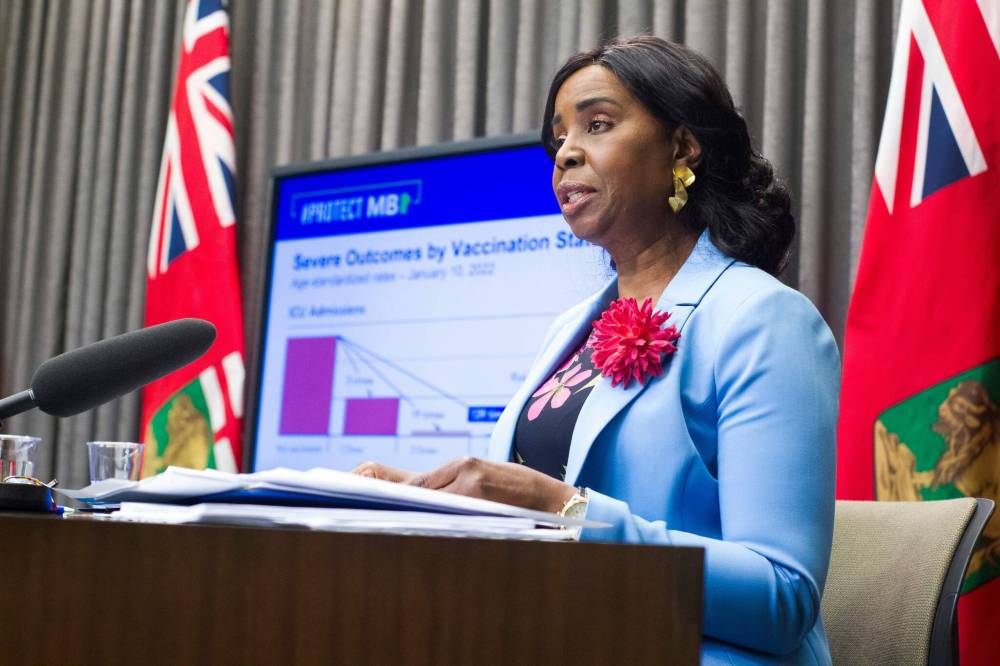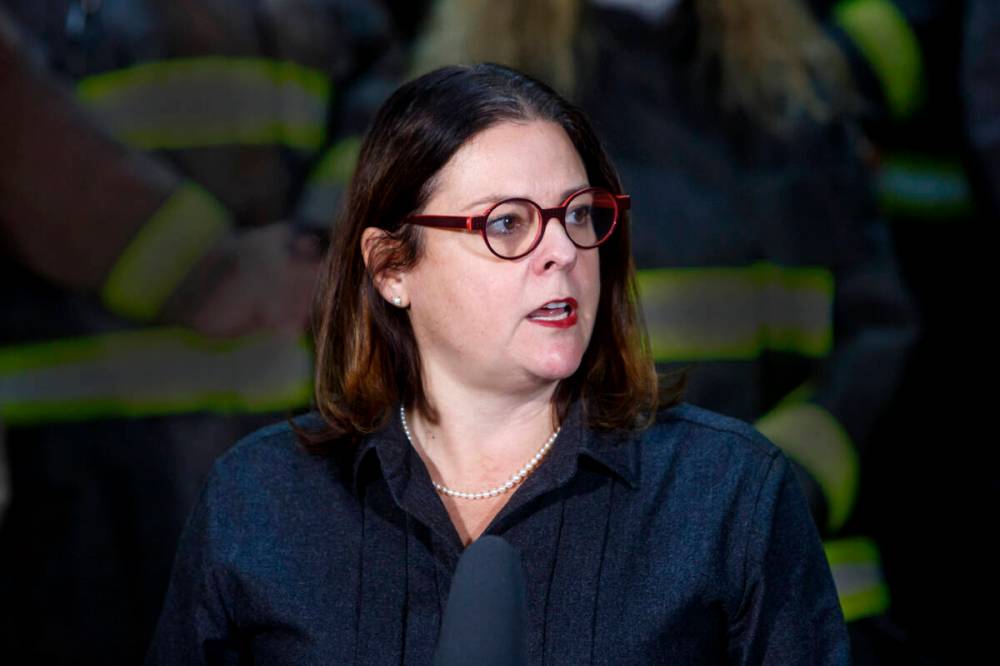Tories foolish to consider opening up amid widespread suffering
Advertisement
Read this article for free:
or
Already have an account? Log in here »
To continue reading, please subscribe:
Monthly Digital Subscription
$0 for the first 4 weeks*
- Enjoy unlimited reading on winnipegfreepress.com
- Read the E-Edition, our digital replica newspaper
- Access News Break, our award-winning app
- Play interactive puzzles
*No charge for 4 weeks then price increases to the regular rate of $19.00 plus GST every four weeks. Offer available to new and qualified returning subscribers only. Cancel any time.
Monthly Digital Subscription
$4.75/week*
- Enjoy unlimited reading on winnipegfreepress.com
- Read the E-Edition, our digital replica newspaper
- Access News Break, our award-winning app
- Play interactive puzzles
*Billed as $19 plus GST every four weeks. Cancel any time.
To continue reading, please subscribe:
Add Free Press access to your Brandon Sun subscription for only an additional
$1 for the first 4 weeks*
*Your next subscription payment will increase by $1.00 and you will be charged $16.99 plus GST for four weeks. After four weeks, your payment will increase to $23.99 plus GST every four weeks.
Read unlimited articles for free today:
or
Already have an account? Log in here »
Hey there, time traveller!
This article was published 28/01/2022 (1410 days ago), so information in it may no longer be current.
It’s hard to imagine how the government could consider loosening restrictions when hospitals are overwhelmed with COVID-19 patients, surgeries continue to be cancelled and dozens of patients per week are transferred to hospitals far from home.
However, that’s what the provincial government is contemplating, even with COVID-19 deaths reaching some of their highest levels since the beginning of the pandemic.
Health Minister Audrey Gordon said during a news conference Friday that Premier Heather Stefanson plans to announce updated public orders next week. The minister said she hopes the announcement will include “an outline to reopen the province.”

The province isn’t exactly closed. There are some restrictions in place, including capacity limits in public places, and measures such as a ban on serving alcohol past 10 p.m. However, compared with some provinces, including Ontario and Quebec, Manitoba’s measures are relatively mild.
Stefanson was urged to bring in more stringent public orders prior to Christmas to slow the spread of the Omicron variant and reduce the impact on hospitals. She refused. We are now seeing the consequences of that: more than 700 COVID-19 patients in hospital (the highest since the beginning of the pandemic), rising ICU numbers, more cancelled surgeries, and the daily transfer of patients to hospitals that are sometimes hundreds of kilometres away from a patient’s home.
Manitoba also has the second-highest COVID-19 death rate in the country over the past two weeks at 7.2 per 100,000 people.
Friday’s news conference was mostly about setting the tone for a likely loosening of restrictions next week.
“We’re seeing early signs of stabilization and positive indicators that COVID-19 is stabilizing in our province,” said Gordon.
That’s not entirely true.
Hospital bed occupancy has not “stabilized.” The only reason it’s not growing further is because hospitals are still cancelling surgeries and moving low-acuity patients out of Winnipeg. Meanwhile, total ICU numbers have grown to 110, of which 52 are COVID-19 patients (pre-pandemic ICU capacity was 72 beds). That’s not stability, that’s chaos.

Gordon said the government will continue to monitor public health data and hospitalization numbers before making a final decision on restrictions next week.
“We need to ensure that we continue to have hospital beds and staff available to provide care for patients in need,” said Gordon.
They don’t have hospital beds available for patients in need now — what makes Gordon think they will be available next week?
Tens of thousands of surgeries have been cancelled to free up hospital space for COVID-19 patients. As a result, surgery patients are not getting the care they need. Many are suffering in pain and agony; some have no idea when their procedures will be rescheduled. It’s inhumane.
Even if hospitalization numbers decline slightly over the next week, hospital wards will still be full, surgeries will still be cancelled and patients will still be sent to hospitals hundreds of kilometres from home.
The government is trying to downplay those negative impacts, including by withholding vital data, as it prepares to loosen restrictions. When asked during the news conference how many surgeries have been cancelled in January, Dr. David Matear, health system co-lead for the province’s unified health-sector incident command, said he didn’t know. Of course they know, they just don’t want to share the information.
When asked about patient transfers to remote communities, Gordon tried to normalize them by saying the province has been transferring patients for years (it has, but not dozens per week to hospitals hundreds of kilometres away).

If there was any empathy in the past for patients suffering on long waiting lists or languishing in emergency room wards, it is now gone. The government is shifting its focus away from that as it prepares Manitobans for a “good news” announcement next week.
This is the Stefanson government’s “new balance.”
The Omicron variant was going to spread no matter what restrictions were in place. However, transmission could have been mitigated to ease the burden on hospitals. The Stefanson government chose not to take those actions. They now seem prepared to ease restrictions further, the consequences of which could be dire.
tom.brodbeck@freepress.mb.ca

Tom has been covering Manitoba politics since the early 1990s and joined the Winnipeg Free Press news team in 2019.
Our newsroom depends on a growing audience of readers to power our journalism. If you are not a paid reader, please consider becoming a subscriber.
Our newsroom depends on its audience of readers to power our journalism. Thank you for your support.

